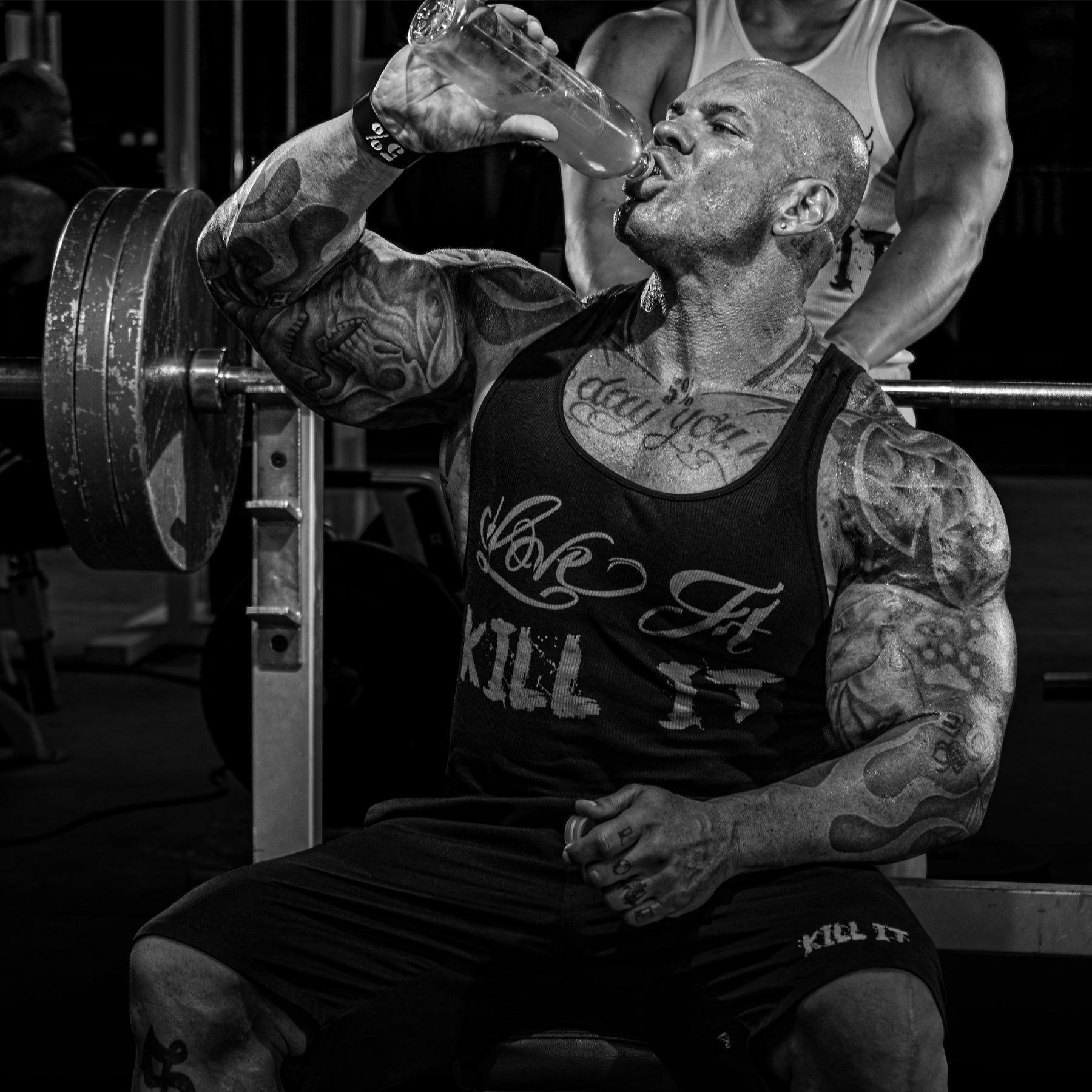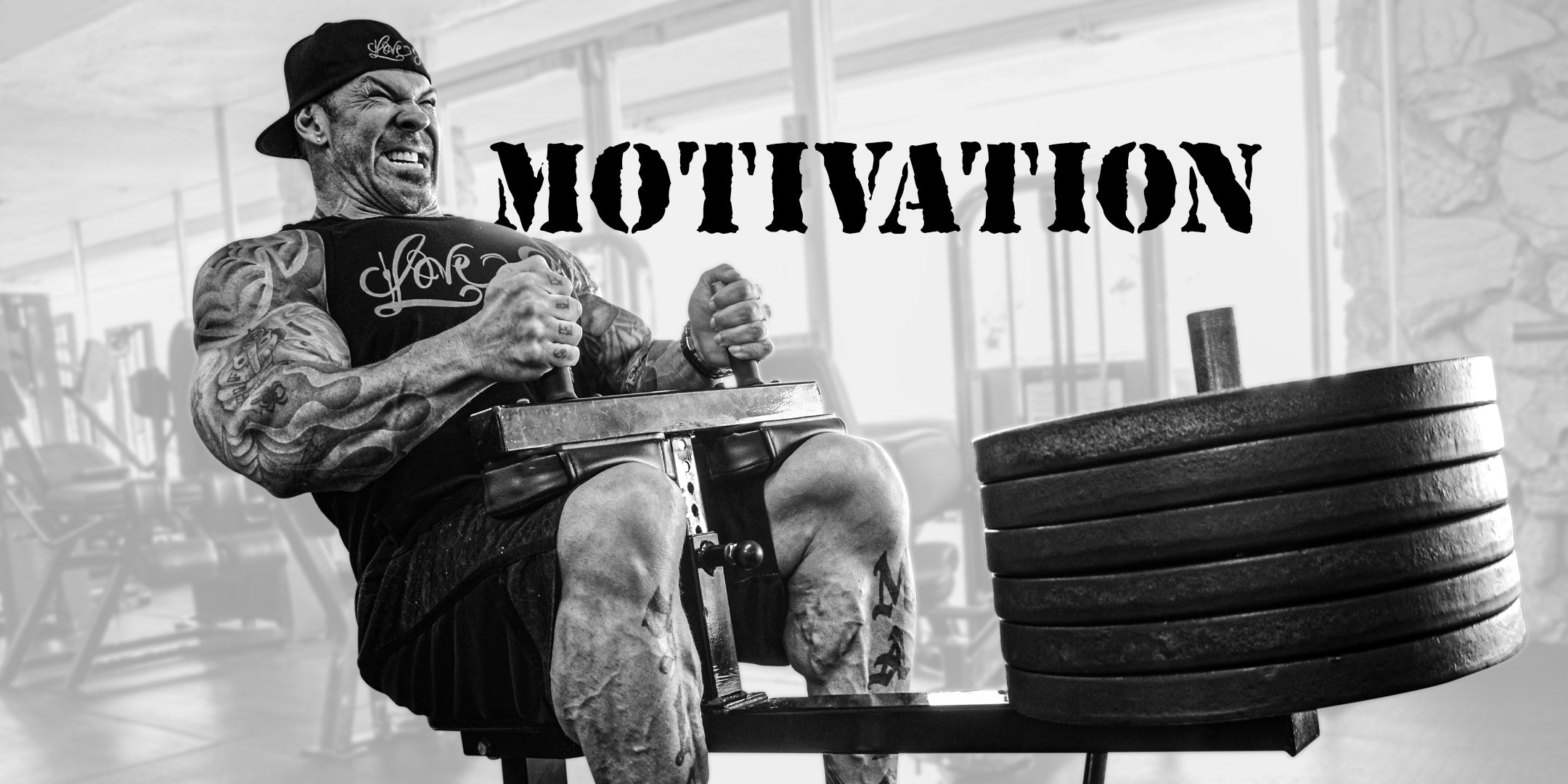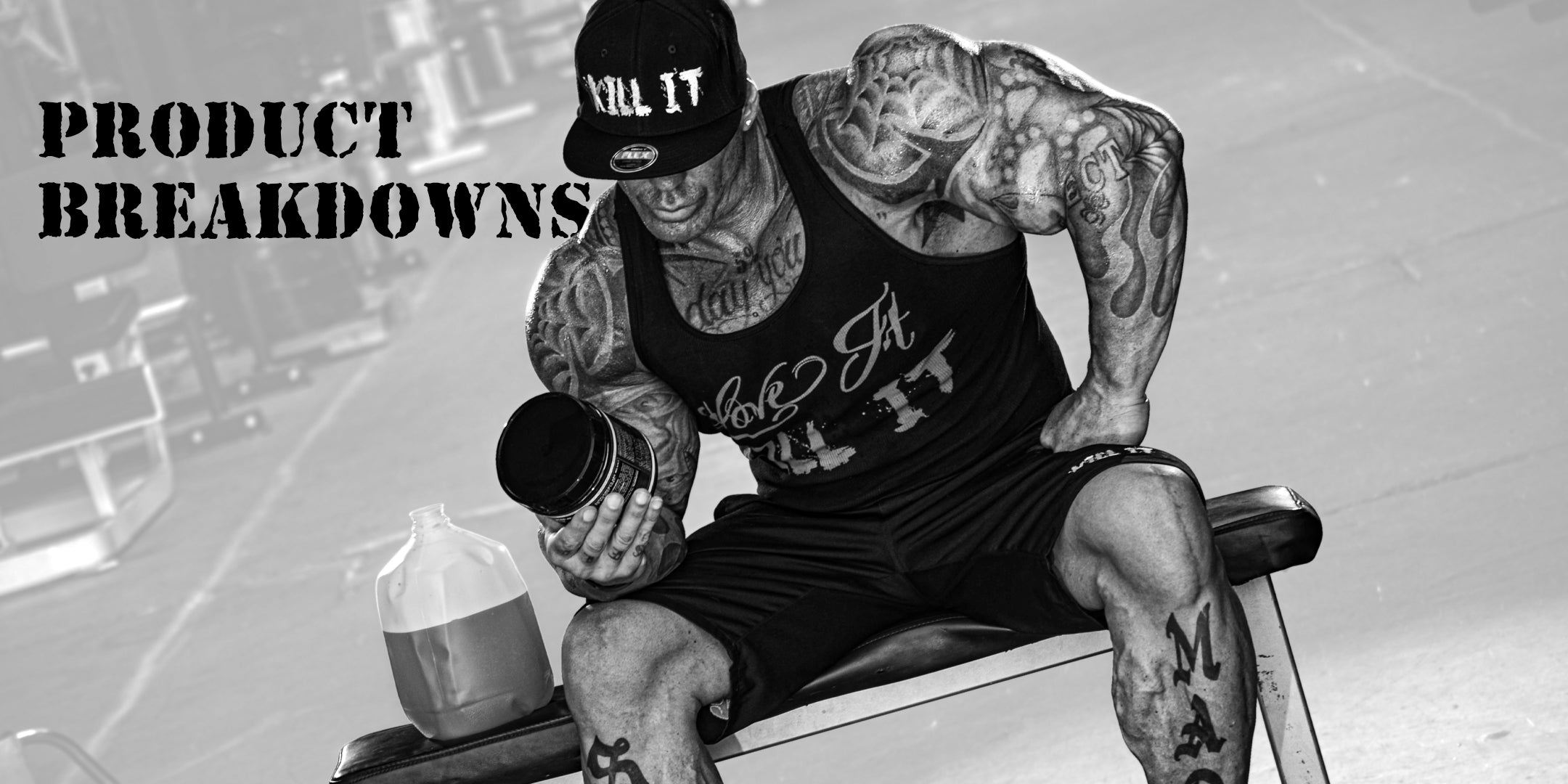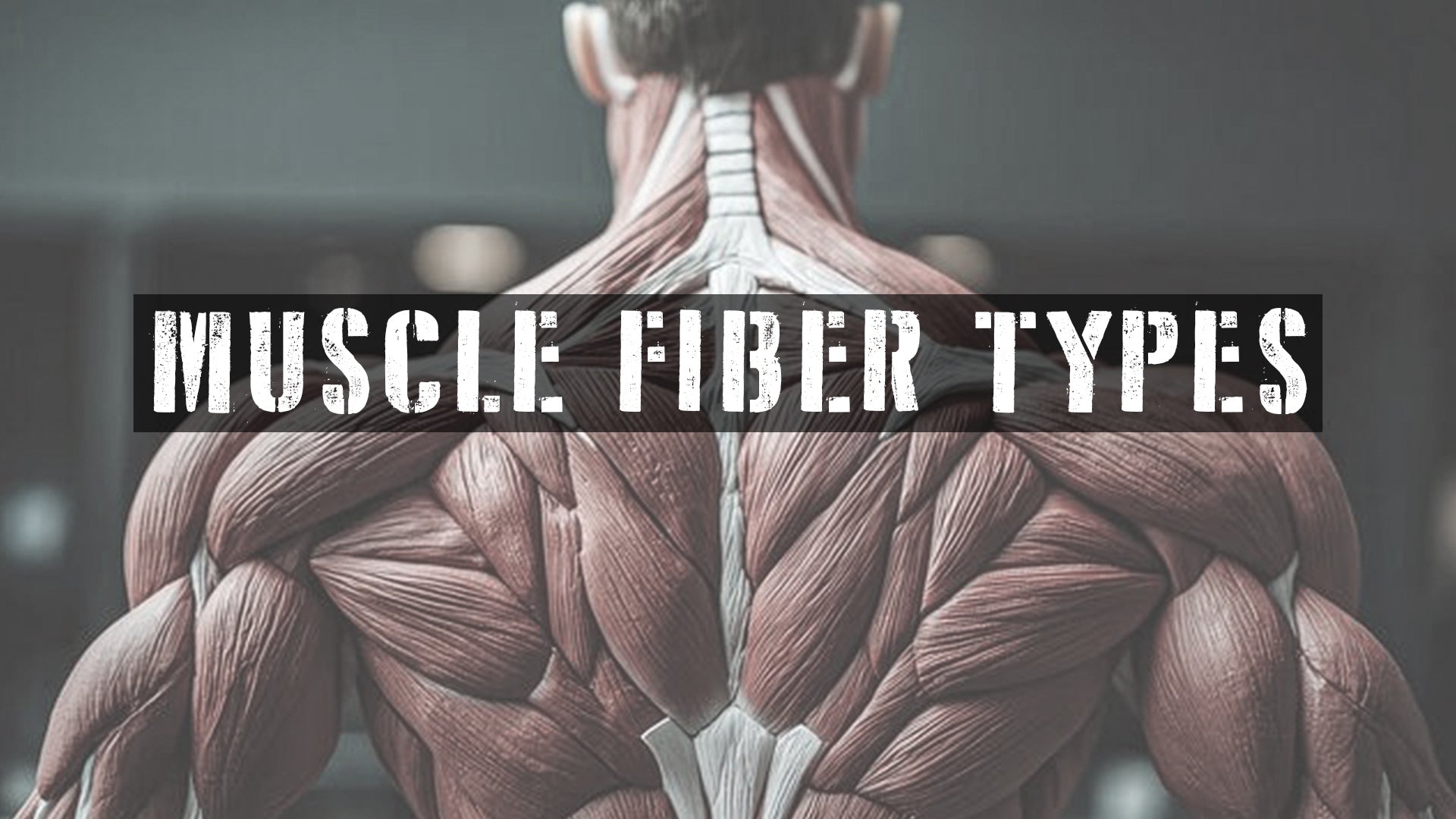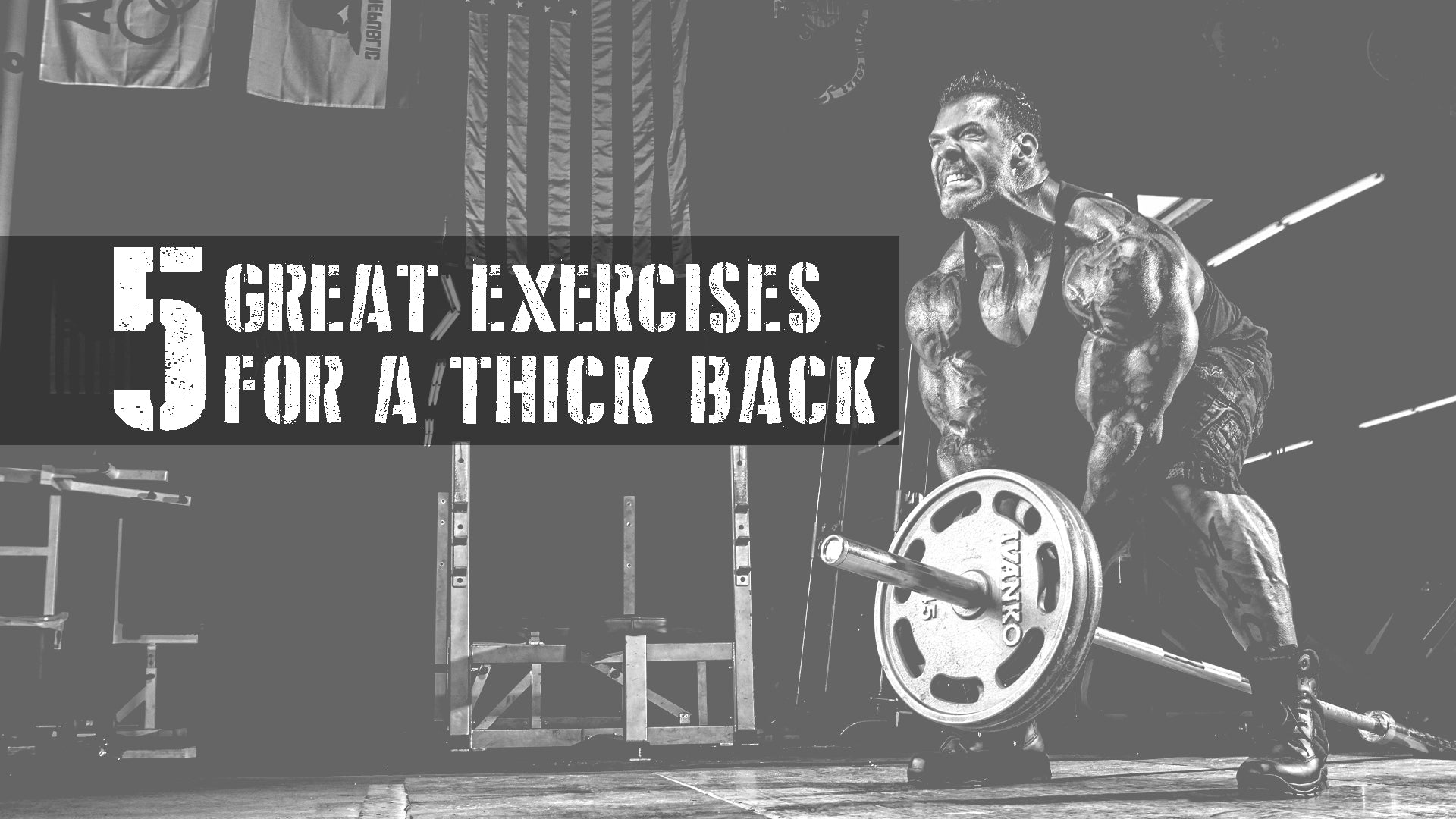In Part 1 of What’s Cortisol and How Does It Affect Your Workouts, we defined cortisol and looked at the basics of what it does. In Part 2, we’ll see how to control it and detail the 5% Nutrition supplements that can help. Let’s dive right in!
How To Control Cortisol
In Part 1, we saw that excess cortisol is inherently catabolic. That’s the last thing you need when your goal is to build muscle. Therefore, the best thing you can do is take steps to keep cortisol at normal levels. Here’s how:
Get Enough Sleep
Sleep problems such as working the graveyard shift, staying up late, insomnia, and sleep apnea not only affect sleep quality, they also affect cortisol levels. If you have any problems sleeping, add 5% Nutrition Knocked The F*ck Out to your supplement arsenal. You should also take additional steps to ensure a good night’s sleep, such as limiting caffeine late in the day, sticking to a specific sleep schedule, sleeping in a dark, comfortable room, and avoiding stress as much as possible.
Control Stress
As noted, you should take steps to control stress. While working out is good, if you do too much or train with too much intensity, it stimulates cortisol release. That’s quite a dilemma - you have to train with enough intensity to stimulate growth yet you risk cortisol release from the very intensity you need. The answer is to use Rich’s approach of All Day You May while you work out. Whether you like All Day You May Stick Packs or regular All Day You May powder, sipping it during your workout will help offset cortisol release. In terms of your workouts, this is the best way to offset the effects of cortisol on your training.
Other tips to control stress include avoiding arguments and other high-stress situations as much as possible, focusing on healthy relationships, and doing your best to enjoy life. Don’t put yourself in situations you know will stress you out.
Avoid Low Carb Diets
To help control cortisol, avoid low-carb diets. That will help maintain normal blood sugar levels, which is important because low levels cause cortisol release. If fat loss is your goal, try a moderate carb approach with 50% of your carbs around your workouts. If more muscle is the goal, don’t add too many carbohydrates, which will take your calorie intake too far above maintenance. Real Carbs or Real Carbs Rice provides primarily low glycemic carb sources. Still, there are some higher glycemic sources as well, making it ideal for use pre and post-workout.
Suggested 5% Nutrition Supplements
Besides the innovative 5% Nutrition supplements already mentioned, here are some other exceptional supplements that can help.
Core KSM-66® Ashwagandha
As an adaptogen, KSM-66 Ashwagandha helps the body cope with stress. It’s thought that one way it achieves this is by helping to regulate cortisol (as well as other stress mediators). Core KSM-66 also supports testosterone production and elevates focus. Sounds like a great supplement to add to your program! (1)
Core Vitamin C
Studies suggest that Vitamin C may indirectly lower excess cortisol levels. We have seen that cortisol is released in response to stress. This can also cause an increase in oxidative stress or an imbalance between antioxidants and free radicals. Adding Vitamin C to your program can help correct this imbalance. (2)
Core L-Glutamine 5000
High levels of stress deplete glutamine. Since glutamine helps offset muscle protein breakdown and is involved in protein synthesis, adding our Core L-Glutamine 5000 to your pre-workout program makes sense.
Recap
It’s true that cortisol is a necessary hormone. Yet in excess, it’s detrimental to your muscle growth goals. As we have seen in this 2-Part Series - What’s Cortisol and How Does It Affect Your Workouts - it can be controlled and its catabolic effects can be limited. Follow the lifestyle and 5% Nutrition supplement suggestions in this article and bring cortisol under control!
References:
- Salve, J., Pate, S., Debnath, K., & Langade, D. (2019). Adaptogenic and Anxiolytic Effects of Ashwagandha Root Extract in Healthy Adults: A Double-blind, Randomized, Placebo-controlled Clinical Study. Cureus, 11(12), e6466. https://doi.org/10.7759/cureus.6466
- https://rtmscentre.co.uk/benefits-of-vitamin-c-for-cortisol-levels/#:~:text=In%20addition%2C%20studies%20have%20suggested,subjective%20stress%20responses%20in%20participants.

